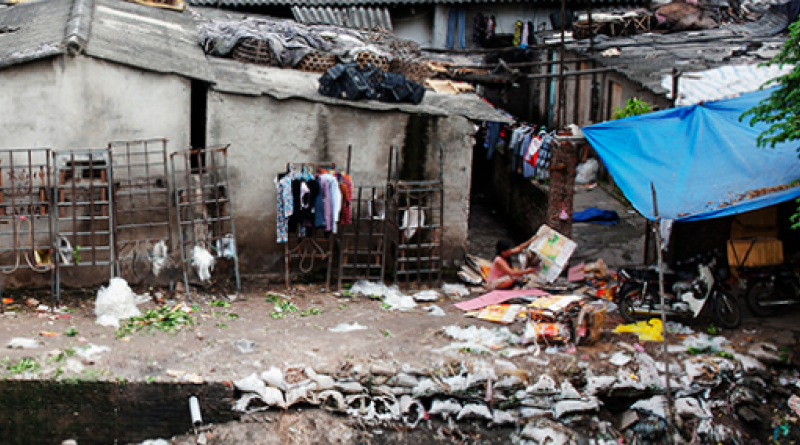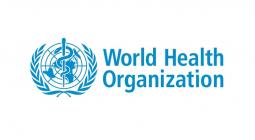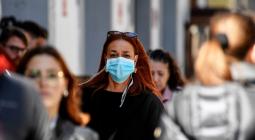UN Launches Global Humanitarian Appeal for Vulnerable Countries, WHO Updates Response Plan.

STORY HIGHLIGHTS
The UN Office for the Coordination of Humanitarian Affairs launched a Consolidated Global Humanitarian Appeal to support approximately 40 vulnerable countries in fighting COVID-19.
Governments are cautioned against diverting funding from existing humanitarian operations, which could create an environment in which cholera, measles and meningitis can thrive, in which even more children become malnourished, and in which extremists can take control – an environment that would be the perfect breeding ground for the coronavirus.
WHO updated its Strategic Preparedness and Response Plan for COVID-19, categorizing countries into five levels of need.
The UN Office for the Coordination of Humanitarian Affairs (OCHA) has launched a Consolidated Global Humanitarian Appeal to support approximately 40 vulnerable countries in fighting COVID-19. OCHA notes that the virus is spreading to countries that were already facing humanitarian crisis related to conflict, climate change, or natural disasters. If it is not stopped, it will continue spreading around the world even as other countries begin to recover.
The USD 2 billion appeal, launched on 25 March 2020, will support a Global Humanitarian Response Plan to be implemented by UN agencies working with international NGOs and NGO consortia around the world. OCHA said the April-December 2020 plan aims to: deliver testing equipment and treatment supplies; install handwashing stations in camps and settlements; and establish “airbridges” and other means to move humanitarian workers and supplies in Africa, Asia, and Latin America.
Mark Lowcock, Under-Secretary-General for Humanitarian Affairs and Emergency Relief Coordinator, announced the release of USD 60 million from the UN Central Emergency Response Fund (CERF) to catalyze contributions to the Fund. CERF had previously released USD 15 million for humanitarian efforts in response to COVID-19. In addition, country-based pooled funds have allocated over USD 3 million to date.
Speaking during the virtual launch of the appeal, UN Secretary-General Antonio Guterres said, “We must come to the aid of the ultra-vulnerable – millions upon millions of people who are least able to protect themselves.” He stressed that working in solidarity is “crucial for combating the virus.”
In supporting the Fund, governments are cautioned against diverting funding from existing humanitarian operations, which could “create an environment in which cholera, measles and meningitis can thrive, in which even more children become malnourished, and in which extremists can take control – an environment that would be the perfect breeding ground for the coronavirus,” per the OCHA press release.
Separately, on 13 March, the World Health Organization (WHO) launched the COVID-19 Solidarity Response Fund, appealing to a wide range of donors for USD 675 million to support its Strategic Preparedness and Response Plan on the global health response to the pandemic.
The Fund allows private individuals, corporations and institutions anywhere in the world to directly contribute COVID19ResponseFund.org. Facebook and Google have instituted a matching scheme for funds raised through their platforms.
The WHO’s COVID-19 Strategic Preparedness and Response Plan aims to enable all countries to prepare for and respond to COVID-19. Funding is sought to:
- Provide protective equipment for frontline health workers;
- Equip diagnostic laboratories;
- Improve surveillance and data collection;
- Establish and maintain intensive care units;
- Strengthen supply chains; and
- Accelerate research and development of vaccines and therapeutics.
The COVID-19 Solidarity Response Fund is hosted by two foundations, the UN Foundation (registered in the US) and the Swiss Philanthropy Foundation (registered in Switzerland).
On 26 March, WHO updated its Strategic Preparedness and Response Plan for COVID-19, first issued in early February. According to the updated plan, support will be prioritized to countries with weak health systems and significant gaps in preparedness capacity for technical and operational implementation. The WHO has categorized countries into five levels based on operational readiness, as well as the current status of their response scenario (preparedness, high-risk of imported cases, imported cases, localized transmission, and community transmission).
31 March 2020
IISD




